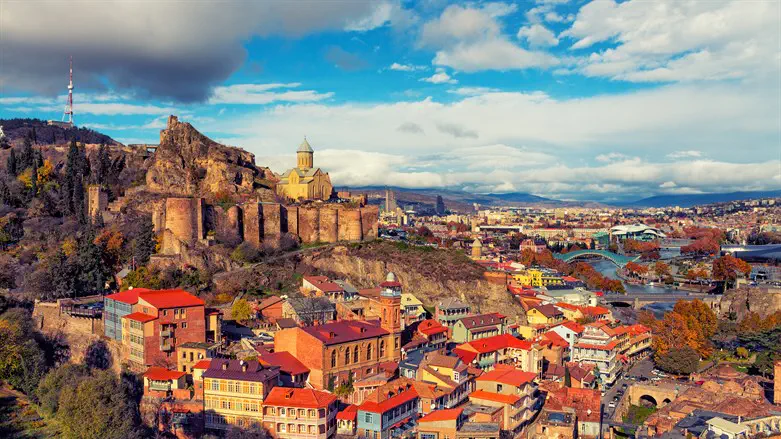
Georgia and Moldova have applied to become members of the European Union in the uncertainty caused by Russia’s ongoing invasion of Ukraine.
The move by the former Soviet republics followed Ukraine’s plea to be immediately admitted into the EU on Monday.
“We ask the European Union for Ukraine’s immediate accession via a new special procedure,” Ukrainian President Volodymyr Zelensky said as Russian troops continued their attack on his country. “Our goal is to be together with all Europeans and, most importantly, to be on an equal footing. I’m sure it’s fair. I’m sure it’s possible.”
Both Georgia and Moldova are not seen as candidates to join the EU in the near future, but their sudden application points to worries about Russia’s regional intentions, Politico reported.
“The time is now: Moldova officially signs the application for membership to join the European Union,” Moldovan President Maia Sandu said.
“Citizens are prepared to work hard towards a stable and prosperous future in the EU and the family of European states,” added Sandu, whose country is next to Ukraine and also Romania, a member of the EU.
Georgian Prime Minister Irakli Garibashvili issued a statement on his official website, indicating that his country – which was invaded by Russia in 2008 – planned to apply for EU membership.
“Today is a historic day for Georgia. I am signing the application for EU membership on behalf of the country,” wrote Garibashvili.
Georgia, which sits at the intersection of Eastern Europe and Western Asia, is expected to have to go through a lengthy process to gain membership, including years of social, economic and legal reforms.
For either nation to be accepted into the EU, all current member nations would need to give their permission.
Both Georgia and Moldova also have breakaway regions whose aspirations for statehood have been backed by Moscow, which could prove to be an obstacle to EU membership.
On Tuesday, Moldova went on high alert after a video appeared in which Belarusian President Alexander Lukashenko, a key Putin ally, stood in front of a map that showed the unrecognized Moldovan breakaway region of Transnistria as no longer part of Moldova.

